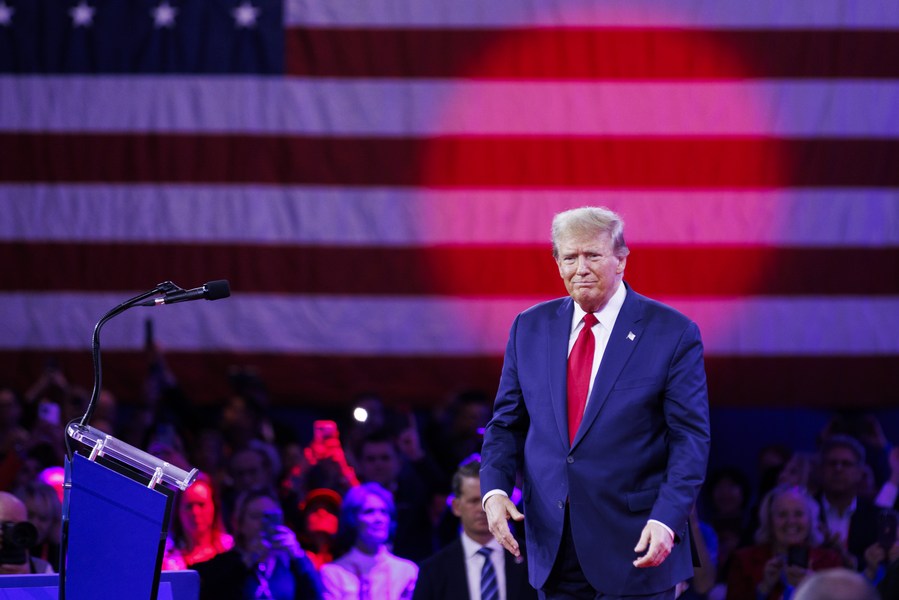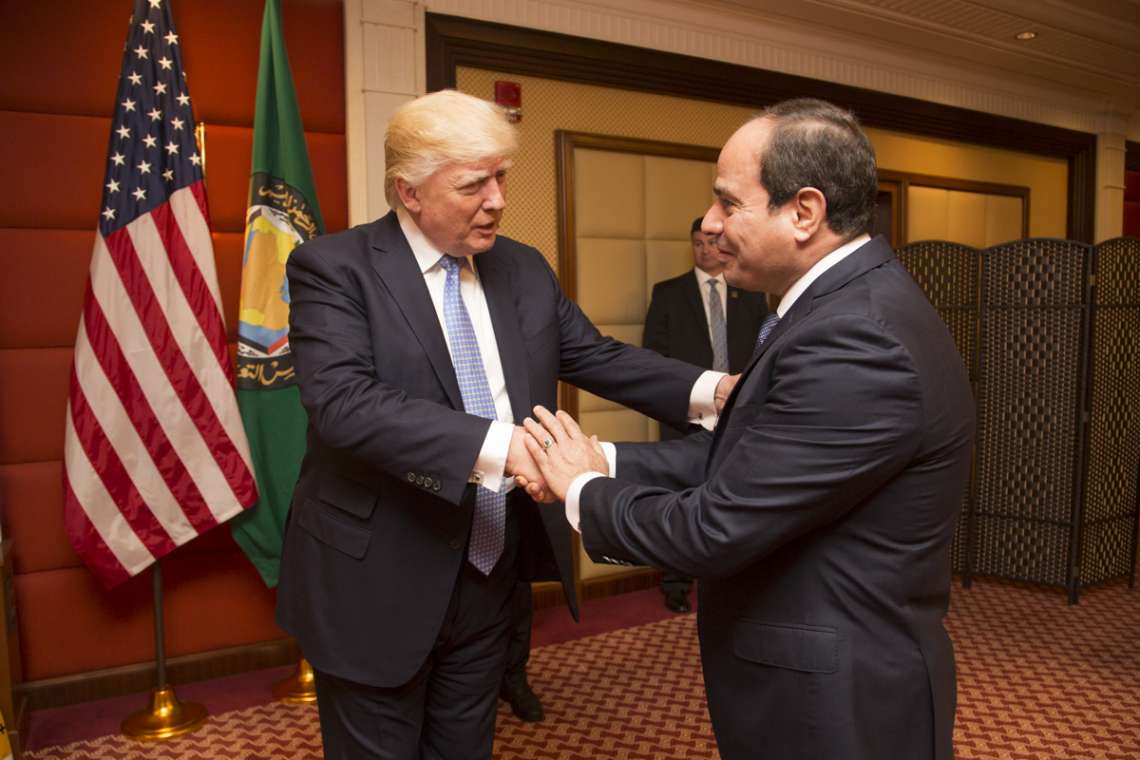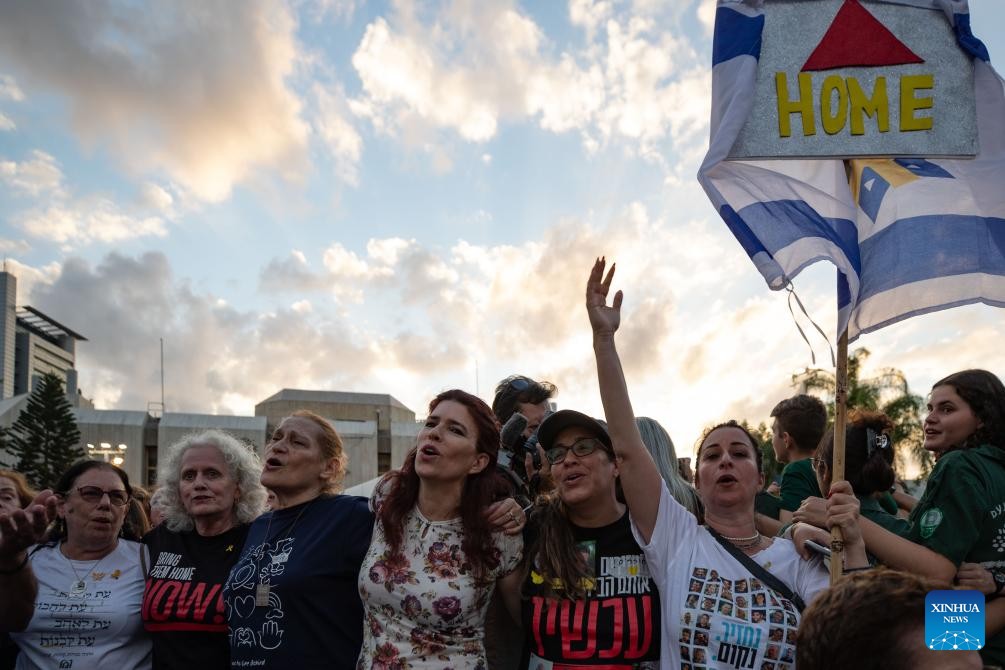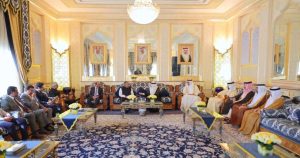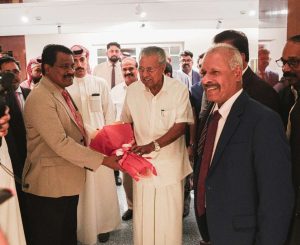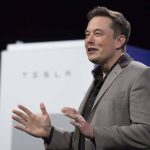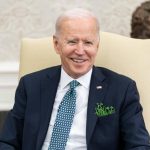His four-day trip through Saudi Arabia, Qatar and the UAE has underscored how dramatically he has reimagined traditional alliances and inserted himself into global conflicts
The first major overseas trip of President Donald Trump’s second term signaled he may be breaking from the foreign policy doctrine of his first term – and emerging as more of a globalist.
Trump already spent his first few months aggressively transforming the role of the US in the world, and his four-day trip through Saudi Arabia, Qatar and the United Arab Emirates this week has underscored how dramatically he has reimagined traditional alliances and inserted himself into global conflicts.
His decision to end sanctions on Syria and become the first US president to meet with a Syrian leader in 25 years signaled an element of risk and engagement that is hardly part of the MAGA credo and does not fit neatly with the viewpoint of some of his most ardent conservative allies. His meeting with interim President Ahmed al-Sharaa, while behind closed doors, may well be remembered for producing the most important moment of his journey.
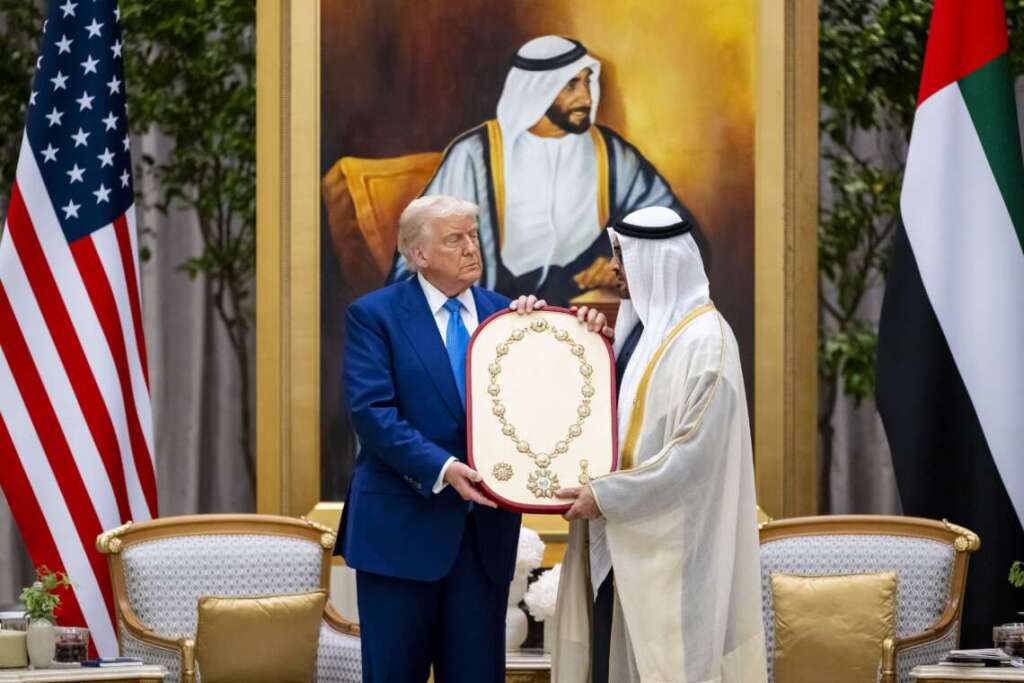
During the trip, Trump implied he played a leading role in easing the rapidly rising tensions in India and Pakistan. He suggested the Iran nuclear talks could take a “violent course” if Tehran doesn’t adequately respond to “friendly” negotiations with US officials. He said that Russian President Vladimir Putin would only engage in peace talks if Trump is personally involved. And he talked about the US establishing a “freedom zone” in war-torn Gaza.
“My priority is to end conflicts, not to start them,” Trump told troops Thursday at the Al Udeid Air Base. “But I will never hesitate to wield American power, if it’s necessary, to defend the United States of America or our partners.”
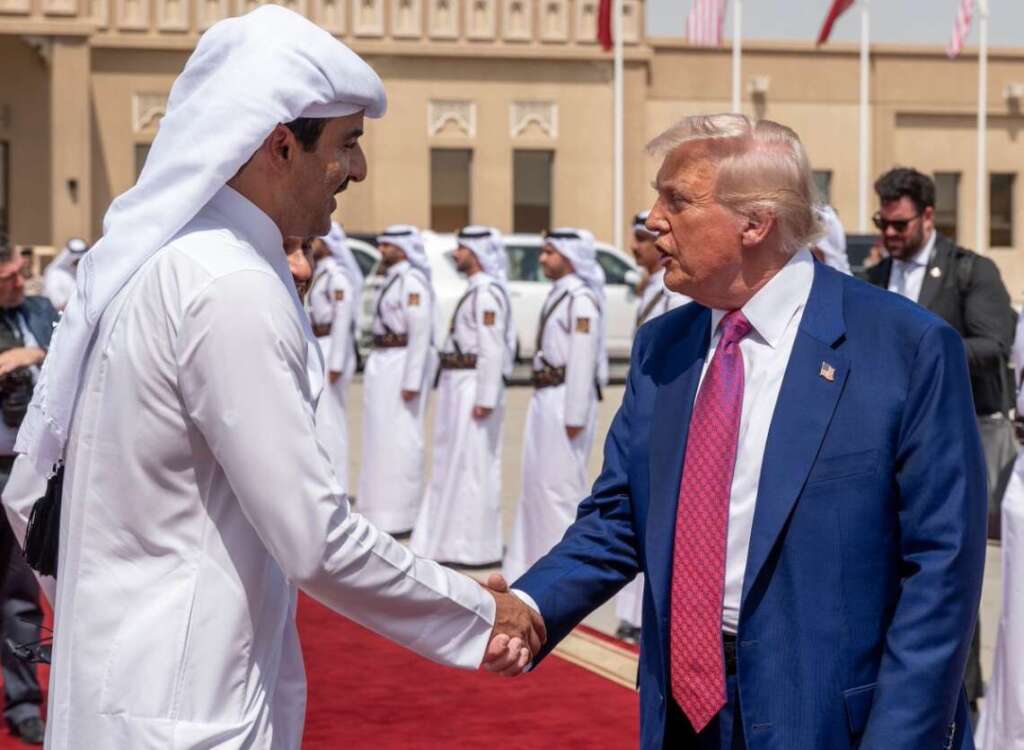
While Trump is hardly turning a new leaf, several moments along the way suggested contradicting views from his first term. The same president who issued a controversial travel ban on seven Muslim countries in 2017 paid a visit to the Sheikh Zayed Grand Mosque in Abu Dhabi on Thursday. The same president who blasted Qatar for ties to terrorism embraced the nation’s emir this week.
The changes show he’s willing to depart from typical GOP and MAGA positions, as Republicans in Congress and elsewhere have shown a repeated reluctance to criticize their party leader. Underscoring that point, a top Democrat praised Trump for his meeting with the interim Syrian president and his general handling of the trip.
“I’m not in the habit of praising Donald Trump,” House Intelligence Committee ranking member Jim Himes said during a conversation with POLITICO Thursday.
Himes said he entered the week concerned about the threat of Iran, opportunities for Syria’s new leadership and the conflict in Gaza. By the end of the week, Himes said he thought Trump “played the Middle East pretty darn well.”
At each stop along the way, the president presented himself in equal measure as dealmaker and peacemaker – in both cases, transactional. Still, while he embraces more globalist attitudes, many of his lofty foreign policy goals quickly ran into a more difficult reality.
“I have concepts for Gaza that I think are very good: Make it a freedom zone, let the United States get involved and make it just a freedom zone,” Trump told business leaders Thursday during a roundtable in Doha.
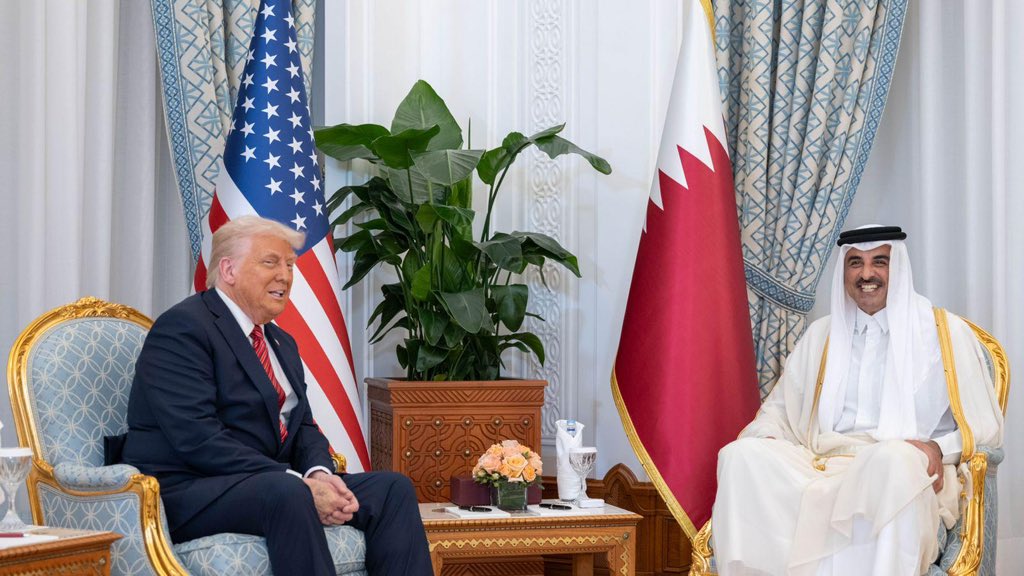
That vision, while always improbable, seemed even more out of reach as nearly 70 people were killed in the latest wave of overnight Israeli strikes on the Palestinian enclave. Trump has yet to show how much pressure he is willing to exert on Israeli Prime Minister Benjamin Netanyahu, whom he did not visit this week.
An Iran nuclear deal has also proven elusive, though Trump appeared to indicate progress has been made after four rounds of talks between special envoy Steve Witkoff and Iranian officials. Trump said Thursday they are “very close” and suggested that Iran has “sort of agreed” to terms.
And Trump repeatedly stated this week that Iran cannot have a nuclear weapon and has warned of violent consequences if they do so – but those comments were met with the ire of Iranian President Masoud Pezeshkian, who called Trump “naive for thinking that he can come to our region, threaten us, and hope that we back down against his demands.”
Similarly, Trump frequently pushed on Russia and Ukraine to engage in peace talks in Turkey on Thursday, even saying he was willing to attend. But when it became clear that Putin would not be going personally, Trump’s tone changed.
“He was going to go, but he thought I was going. He wasn’t going if I wasn’t there and I don’t believe anything’s going to happen, whether you like it or not, until he and I get together,” Trump said early Thursday.

